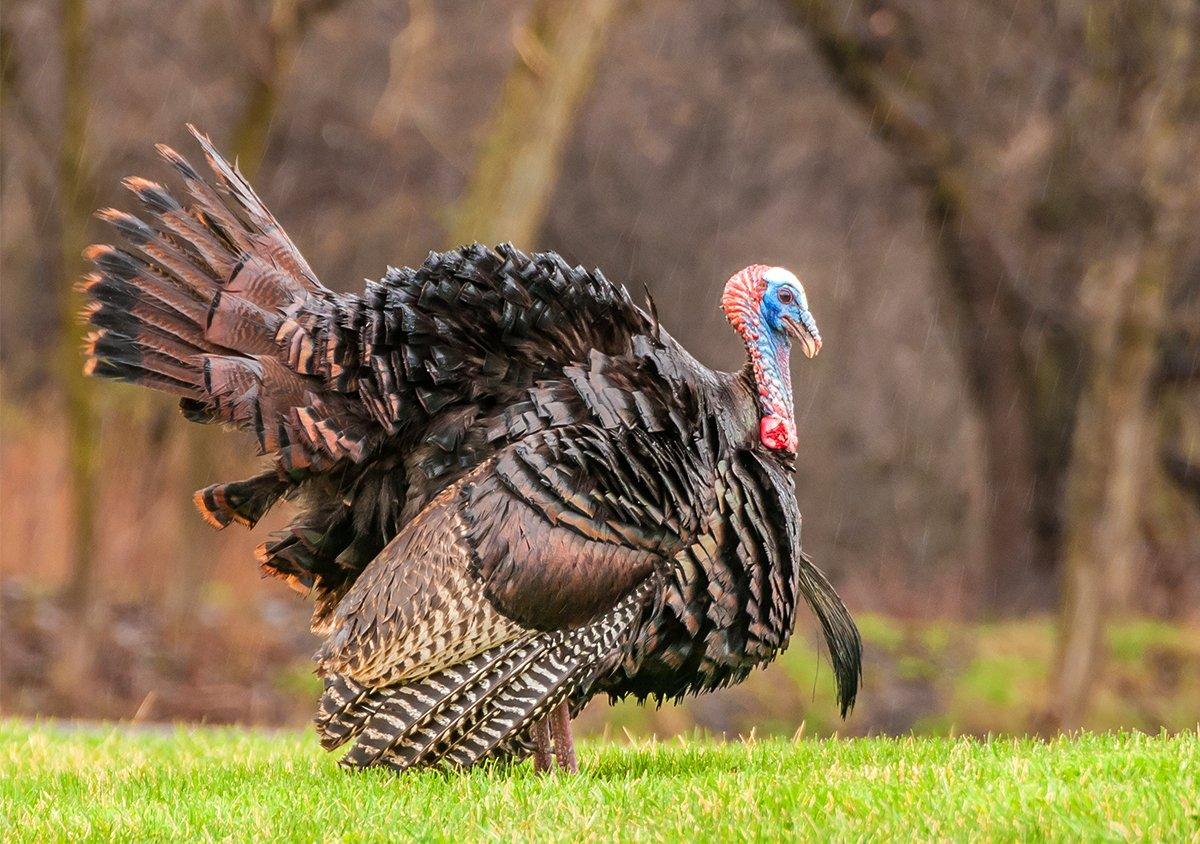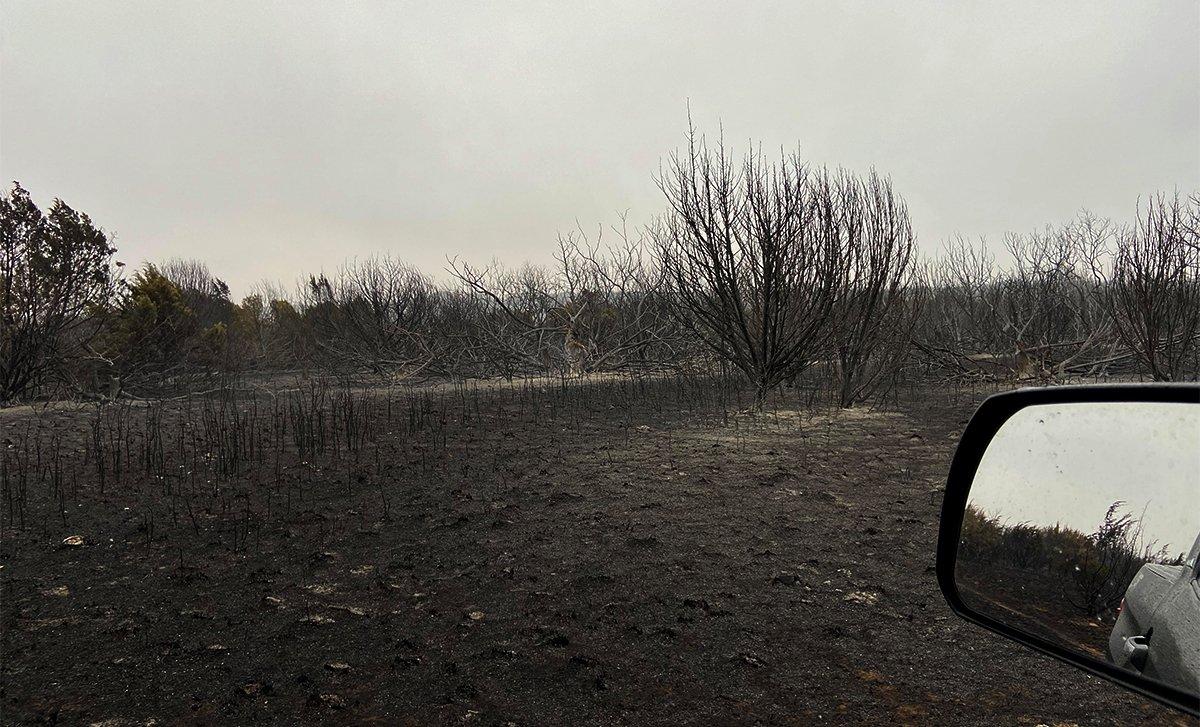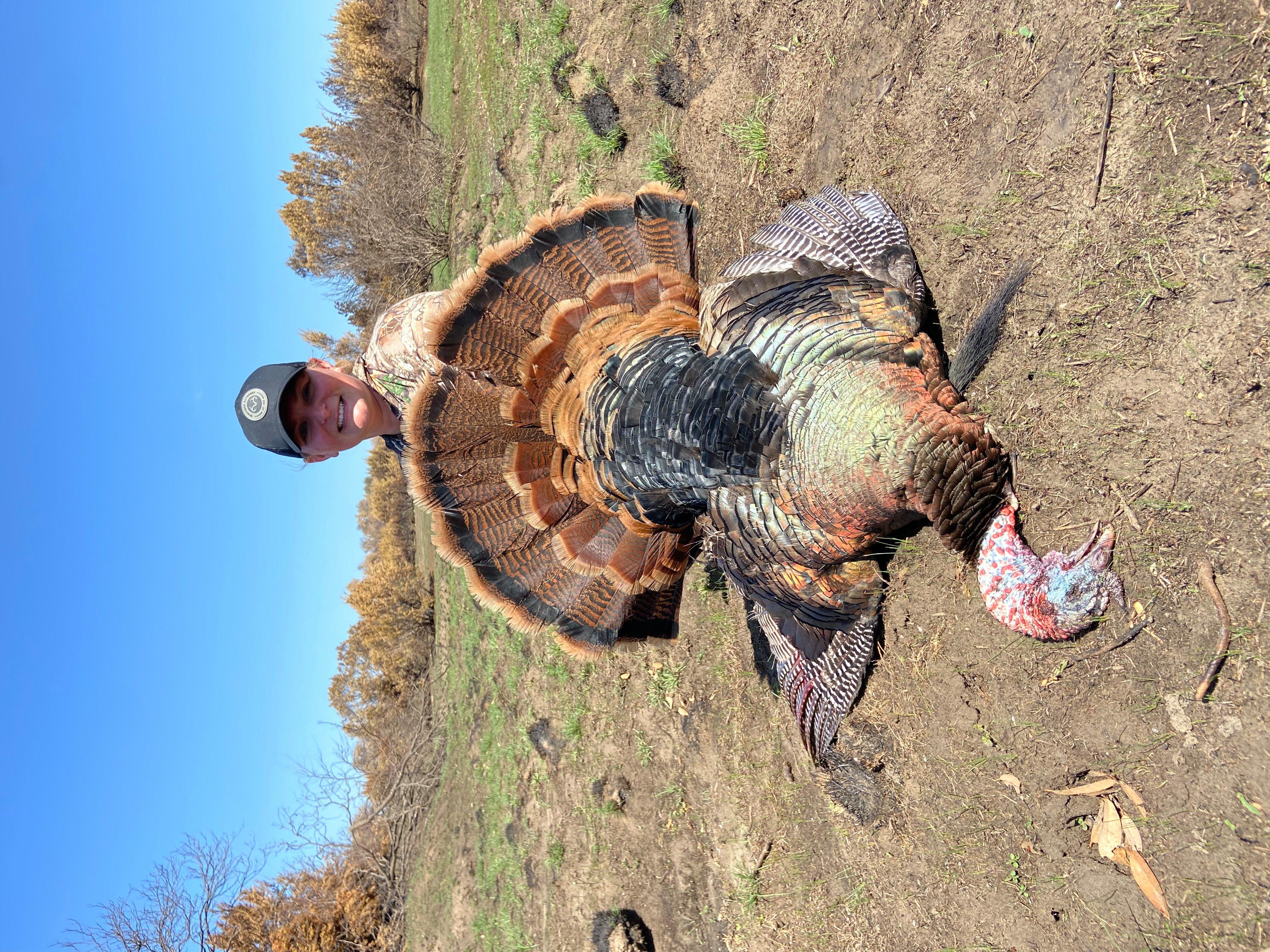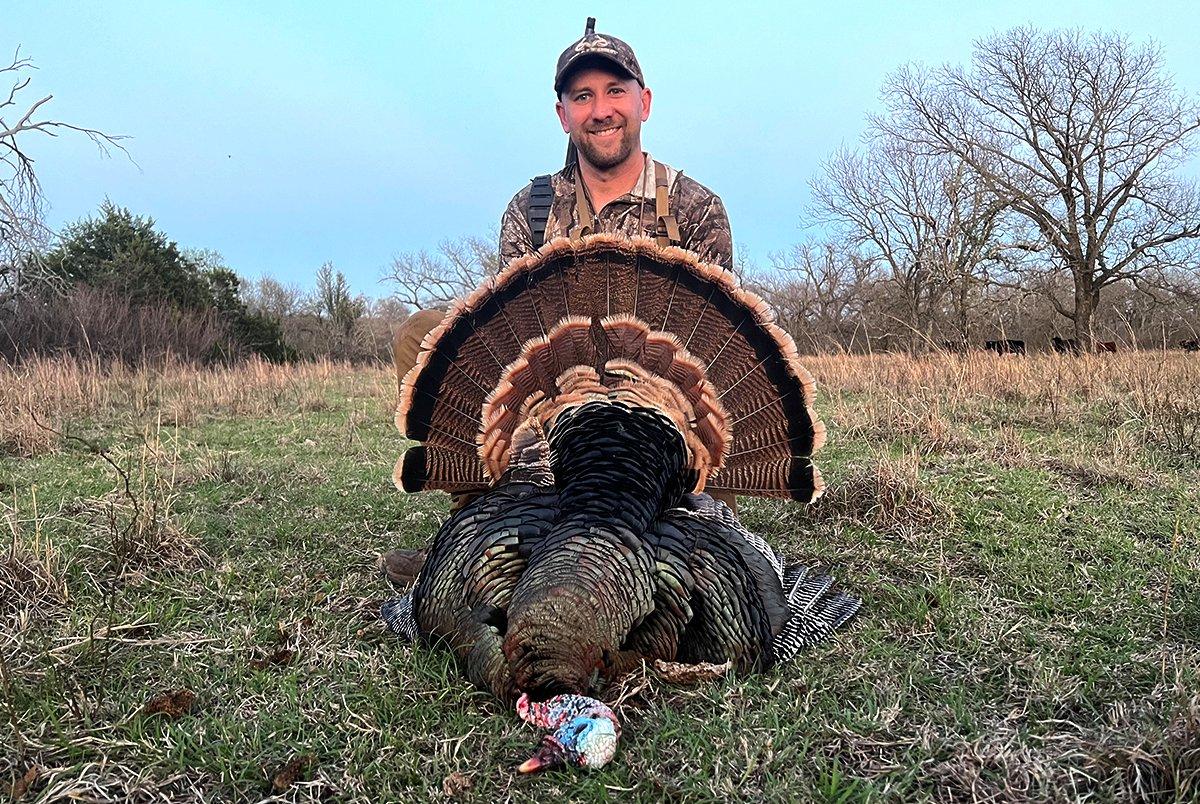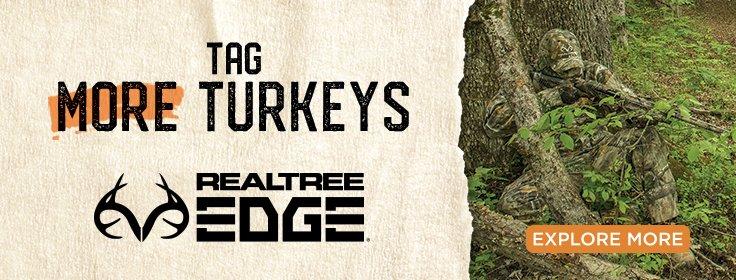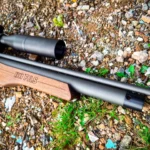There is a universal question among turkey hunters, usually asked in the predawn while the coffee is being made. What will this weather do to the turkeys? We’ve always been told and assumed that birds gobble best when it’s clear, calm, and warm. Nice days and dogwoods, after all, are part of the allure of spring hunting.
But hunting seasons are short and spring is turbulent, and so if you wait for the perfect weather to go hunting, you might not get to go at all. For turkey hunters, one saving grace is that the birds are diurnal — daytime critters — and so almost regardless of what the weather is doing, they are on the ground, somewhere, and can be hunted. One time a buddy and I ditch-slipped a Nebraska longbeard during a tornado warning. Smart? Not at all. But possible.
Turkeys have another saving grace, too. They have waited all year to breed, and a little bad weather doesn’t change their intentions. In fact, I’ve learned, a crummy forecast usually bothers me more than it does the birds.
Just last week in Texas, one of our hunting days was forecast to be 94 degrees (it actually reached 96) with a sustained 30-mph wind. A wildfire had ravaged the ranch we were hunting only a few weeks earlier, and so the dry air was laced with black soot. But before those Winds of Hell began to blow, the morning broke in a fog so thick it seemed I could’ve cut a slice of it from the sky and set it in my truck for later.
Will they even gobble in the fog like this? my buddy Miles wondered aloud.
Not much, and it seems like the fog keeps them in the tree forever, I said, matter-of-factly. Fifteen minutes later, a pair of vocal longbeards strutted right through the soup to our gun barrels. Miles killed one and I missed the other.
(Don’t Miss: 10 Reasons Why You Suck at Calling Turkeys)
A few hours later, the forecast was living up to the hype. Maybe I’ve seen it hit 90 degrees a time or two during the late season in Tennessee, but I wouldn’t swear to it. The Texas wind and heat felt like the rush of opening a broiling oven after something greasy has oozed onto the elements. Turkeys won’t do anything in this, I said, again matter-of-factly, as we cruised ranch roads and glassed under shade trees.
Then we topped a hill where two Rio Grande gobblers were strutting in the blazing sun. One of them gobbled at the truck. We cruised a half mile past them, made a wide loop to set up, and called them right in. Michelle, my wife, killed one at 12:04 p.m. At that point, having been 100% wrong on all of the day’s turkey behavior predictions, I made the safe bet that everyone else was probably at least as hungry as me. Let’s go get some barbecue and try again this afternoon, I suggested.
Listen to the Realtree Outpost Podcast from this hunt:
When in Doubt, Go Hunt
The other day, before Texas, a buddy of mine from Alabama called and said, I slept in this morning because it was cloudy and raining. I think I messed up, because it’s pretty outside now. He’d been having a good spring to that point, with several close calls but no trigger pulled. Since my season at home wasn’t open yet, I was living vicariously through him, and I also felt compelled to suggest what the turkeys would be doing at that very moment in another state, on a property I’d never seen. Channeling Dr. Phil, I told my buddy that many times in the past, I’ve forced myself to get up and go hunt and I’ve never regretted it, even when I didn’t get a bird. When I have slept in, though, I’ve almost universally woken up feeling sorry for myself.
Point being, go hunting and see what happens, I said.
The next morning, my buddy waited out a predawn deluge, and then he heard a turkey gobble at the departing thunder as he was gathering his gear. He sent me pictures of that bird later in the day, lying dead on his tailgate, with the words, How ’bout that, Ol’ Son?
Not that it offered much hope back in Texas. The winds were still raging as I watched the sun fade behind the live oaks that evening, but it seemed as though at least one of my predictions would hold true: Turkeys wouldn’t do squat that evening, hot as it was. Miles was tagging along with me — the first time he’d ever been unarmed in Texas, he said — and we decided to sit within earshot of a creek bottom, where turkeys often roost. With less than an hour of shooting light remaining, I hit my box call, thinking maybe I’d get a bird to shock gobble before fly-up. The answering gobble was so faint I thought I might’ve imagined it, but Miles heard it too.
No way we’re killing that bird, I whispered. He’s a mile away, and they’ll be flying up any minute. Shoot, he’s probably up in a tree right now, gobbling from the limb.
But when he gobbled again a few minutes later, I realized he’d cut half the distance. I popped in a mouth call and yelped, and he roared back from the dark timber, so close I could feel the rattle in his throat. Then I saw him, strutting across the pasture toward me, a mere silhouette in the fading light. But when he got to 25 yards, I could see his white head pretty good.
(Don’t Miss. Seriously. Never Miss a Gobbler Again)
In 28 seasons of hunting, I’ve never killed a gobbling turkey any later in the day than that one. Never worked one at high noon when it was 94 degrees, either. Nor have I ever seen a turkey pitch into a blinding fog and tear right through it, drumming and gobbling so furiously I never lost track of him, before ultimately revealing himself within gun range.
That day, I saw all the above, and in every instance predicted that the turkey would do the exact opposite of what he actually did.
Sometimes, it’s best to just shut your mouth and go hunting.





































